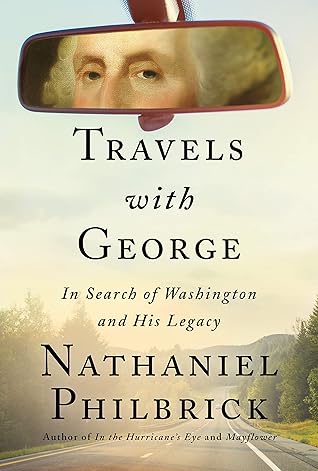More on this book
Community
Kindle Notes & Highlights
Read between
April 13 - October 25, 2022
the librarians and archivists were eager to share what information they had, sending me pages from local histories, journals, diaries, letters, and newspaper clippings. In a surprising number of instances they even offered to show us around their towns,
But questioning should never lead to forgetting.
deported to places as far away as Louisiana (where the name Acadian became shortened to “Cajun”).
On June 22, more than a month after Washington’s inauguration, Lee finally arrived in the city.
“Men’s minds are as variant as their faces,” he wrote. “Liberality and charity . . . ought to govern in all disputes about matters of importance.”
On the other hand, “clamor and misrepresentation . . . only serve to foment the passions, without enlightening the understanding.”
the Statue of Liberty—a green colossus inspired by the abolition of slavery—was the ultimate Civil War monument.
When Washington laid his hand on that holy book, it was opened to Genesis 49–50, in which Jacob tells his sons that their descendants, the twelve tribes of Israel, will create a great nation.
Despite all her misgivings and regrets, she was “determined to be cheerful and to be happy in whatever situation I may be, for I have . . . learnt from experience that the greater part of our happiness or misery depends upon our dispositions, and not upon our circumstances; we carry the seeds of the one or the other about with us, in our minds, wherever we go.”
Old Sturbridge Village,
Worcester is home to the American Antiquarian Society (AAS), which has the finest collection of early American newspapers in the world.
Artemas Ward, the general who had been in command of the provincial army when Washington arrived in 1775. Washington’s criticisms of the New Englanders did not sit well with Ward, and the two generals appear to have become increasingly estranged. It did not help matters that Ward was the first officer to propose the strategy that ultimately allowed the Americans to prevail: the fortification of Dorchester Heights, a move Washington initially rejected in favor of attacking British-occupied Boston directly. Only after Washington’s plan to take Boston by storm had been unanimously voted down by
...more
Liberty Tree (chopped up for firewood by the British during the Siege of Boston); the Old South Meeting House, where a reputed five thousand people gathered in the hours before the Boston Tea Party back in 1773 (and which still stands today); and finally to the State House (known now as the Old State House),
“The Brown study changed everything,” Scott said. “It broke the ice.” That’s just it, I think. History doesn’t sit still, frozen on its pedestal like a statue. It’s ongoing; it’s dynamic; it keeps breaking ice.
As Steinbeck had so prophetically written, “We do not take a trip; a trip takes us.”
“Eleven o’clock Sunday morning. The most segregated hour in America.”
What haunts America is more pervasive, more stubborn, and often invisible. It is the legacy of slavery, and it is everywhere.
“I’m not interested in historic sites as nostalgia. I’m interested in today. What can the site teach me that’s relevant to me now?”


